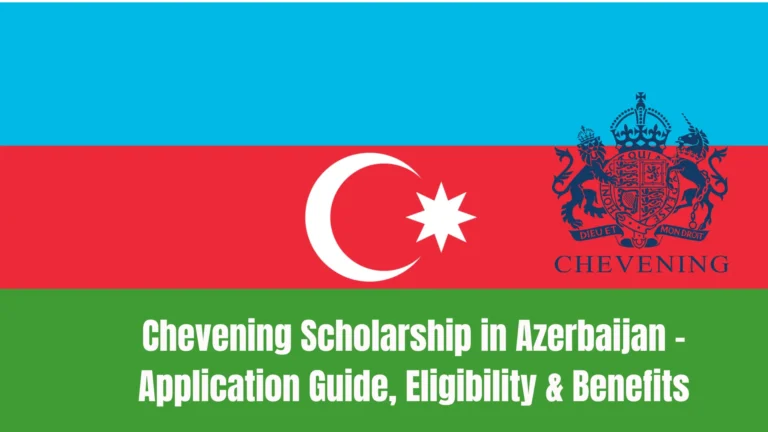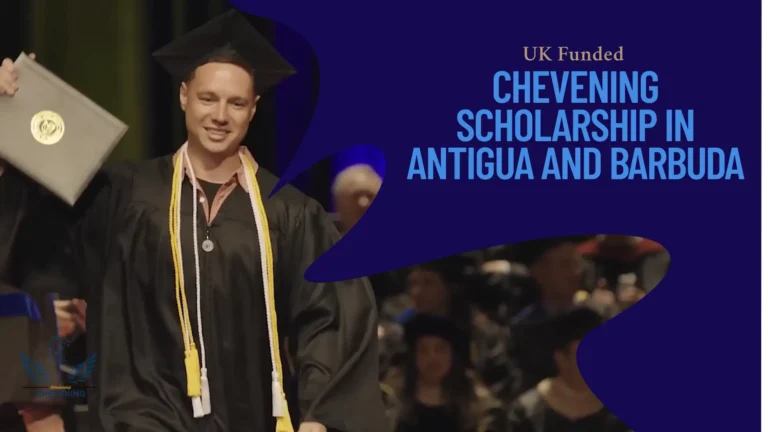The Ultimate Guide to Study Abroad Scholarships: Funding Your Global Education
Introduction: The World Awaits – Let Funding Take You There
Are you lookig for Study Abroad Scholarships 2026? Studying abroad is a transformative experience that broadens your horizons, builds cultural competence, and enhances your academic and career profile. However, the costs associated with international study—tuition, airfare, accommodation, and living expenses—can seem prohibitive.
This is where scholarships, grants, and bursaries become your passport to the world. This comprehensive guide is your one-stop resource for understanding the entire landscape of international education funding. We will demystify the different types of financial aid, from prestigious study abroad scholarships to specific teacher training grants and need-based bursaries, providing you with the strategies and resources to turn your dream of studying overseas into a financially viable reality.
Defining Your Financial Aid: Scholarships, Grants, and Bursaries
While often used interchangeably, these terms have distinct meanings:
- Scholarships: Typically awarded based on merit. This can be academic excellence, athletic achievement, artistic talent, or leadership potential. You do not need to repay them. Example: A scholarship for a student with top grades to study engineering abroad.
- Grants: Usually awarded based on financial need. They are designed to help students who might not otherwise afford an education. They do not need to be repaid. Example: A government grant for students from low-income families.
- Bursaries: A type of grant primarily awarded based on financial need. The terms are often synonymous, though bursaries can sometimes be more specific to certain circumstances. Example: A university bursary for a student from a care-leaver background.
The Golden Rule: True scholarships, grants, and bursaries are gifts, not loans. You do not have to pay them back.
Study Abroad Scholarships
How to Find and Win Study Abroad Scholarships
- Start Your Search Early: Begin looking for scholarships at least 12-18 months before your intended start date. Deadlines come quickly.
- Use Reputable Search Engines:
- Scholars4Dev: Excellent for international students.
- GoAbroad.com: Features scholarships specifically for study abroad programs.
- The Scholarship Hub: Great for UK-based students looking to go overseas.
- University Websites: The #1 source. Check the “Funding” or “Scholarships” section of your chosen university’s international office pages.
- Target Your Search:
- By Destination: E.g., “Scholarships for studying in Germany.”
- By Subject: E.g., “Scholarships for women in STEM abroad.”
- By Student Demographics: E.g., “Scholarships for first-generation students studying overseas.”
- Craft a Winning Application:
- Personal Statement: This is your story. Explain why you want to study abroad, how it aligns with your goals, and what makes you a unique candidate. Be specific and passionate.
- Letters of Recommendation: Choose referees who know you well and can speak to your abilities and character. Provide them with your CV and details about the scholarship.
- Meet All Requirements: Follow instructions precisely. Submit all documents before the deadline.
Top Types of Study Abroad Scholarships
- University-Specific Scholarships: Many universities offer automatic or application-based scholarships for international students.
- Government-Funded Scholarships: Prestigious programs like the UK’s Chevening Scholarship or the US’s Fulbright Program offer full funding for international study.
- Private and NGO Scholarships: Organizations like the Rotary Club or Soros Foundation offer scholarships for international study.
- Destination-Country Scholarships: Some countries offer scholarships to attract international talent, such as DAAD Scholarships for Germany or Australia Awards.
Grants for University Students from Low-Income Families
Understanding Grants for Financial Need
For students from low-income backgrounds, grants are a crucial lifeline that can make university education possible without crippling debt. Unlike loans, grants are non-repayable.
Key Sources of Grants:
- Government Grants:
- In the UK, undergraduate students can apply for maintenance grants through Student Finance England (and equivalent bodies in Wales, Scotland, and NI), which are income-assessed.
- Many governments worldwide offer similar need-based programs.
- University Hardship Funds: Most universities have discretionary funds designed to help students facing unexpected financial difficulty during their studies.
- Charitable Trusts and Foundations: Numerous charities exist to support students from specific backgrounds (e.g., care leavers, estranged students, those from particular regions or industries).
How to Apply for Need-Based Grants:
- Complete a Financial Assessment: For government grants, this is usually part of your main student loan application.
- Be Prepared to Provide Evidence: You will likely need to provide documents proving your household income.
- Write a Compelling Personal Statement: For charitable grants, explain your situation clearly and honestly, and articulate how the grant will help you achieve your academic goals.
Teacher Training Grants
Funding Your Teaching Career in the UK
The UK government offers generous financial incentives to train in subjects with a shortage of teachers. These tax-free bursaries and scholarships are designed to attract top graduates into the teaching profession.
Bursaries for 2025/26 (Typical Figures):
- Priority Subjects (High Bursary): Mathematics, Physics, Chemistry, Computing (£29,000 – £31,000)
- Other Priority Subjects: Modern Foreign Languages, Biology, Design and Technology (£26,000 – £28,000)
- Primary: Scholarships are available but general bursaries are less common.
- Non-Priority Subjects: May not have a bursary, but you can still access student finance.
How it Works:
- You do not apply for the bursary separately. Once you are accepted onto a eligible PGCE course, the training provider will automatically assess you for it.
- It is paid directly to you in instalments over the duration of your course.
- You do not have to pay it back. It is a grant to support you while you train.
- You can also apply for a student loan for tuition fees and maintenance on top of the bursary.
How to Secure Funding:
- Choose an accredited Initial Teacher Training (ITT) provider.
- Apply for your PGCE/PGDE course through the DfE’s “Apply for Teacher Training” service.
- Accept your offer. Your provider will handle the bursary process.
Education Grants UK
This section addresses your keywords: get paid to study, education grants uk, get paid to study uk.
Beyond Tuition: Grants for Living and Learning
The concept of “getting paid to study” often refers to funding that covers your living costs, allowing you to focus on your studies rather than part-time work.
How Can You Get Paid to Study?
- Postgraduate Research Studentships: For PhD students, these cover tuition fees and provide a stipend (a tax-free living grant). This is common in STEM and Humanities subjects.
- Sponsored Degrees: Some companies offer “degree apprenticeships” or sponsored degrees where they pay your tuition and a salary while you work for them.
- Large Bursaries: The teacher training bursaries and some healthcare bursaries (like the NHS Learning Support Fund) are significant enough to live on.
- University Scholarships: Many postgraduate taught scholarships include a stipend for living costs.
Finding Education Grants in the UK:
- Turn2Us: A charity website with a grants search tool for individuals in need.
- Family Action: Provides grants to disadvantaged families and young people.
- Your University’s Financial Aid Office: Your first port of call for information on hardship funds and internal grants.
What is a Bursary?
Demystifying the Bursary
A bursary is a monetary award made to a student based primarily on financial need. Its purpose is to enable someone to study who might otherwise be unable to for financial reasons.
Key Characteristics of a Bursary:
- Need-Based: The primary criterion is demonstrated financial need.
- Non-Repayable: It is a grant, not a loan. You do not pay it back.
- Often Specific: Bursaries may target specific groups: students from low-income households, care leavers, students with disabilities, or those from particular regions.
Bursary vs. Scholarship: A Quick Guide
| Feature | Bursary | Scholarship |
|---|---|---|
| Primary Criteria | Financial Need | Merit (Grades, Talent, Sport) |
| Purpose | To enable access to education | To reward and encourage excellence |
| Application | Often requires proof of income | Requires evidence of achievement |
How to Get a Bursary:
- Apply to University or College: Your application for student finance (e.g., through Student Finance England) often acts as an automatic application for government bursaries.
- Check with Your Institution: Colleges and universities have their own bursary schemes. Contact their student services or financial aid office.
- Search for Charitable Trusts: Use online tools like The Scholarship Hub or Turn2Us to find charitable bursaries you may be eligible for.
- Prepare Documentation: Be ready to provide proof of your financial situation, such as bank statements or benefit letters.
Bursary Payment: Payments are usually made directly into your bank account, often in instalments (e.g., once per term) throughout the academic year.
Conclusion: Your Funded Educational Journey Starts Here
Navigating the world of educational funding can be complex, but it is a worthwhile endeavour. By understanding the differences between scholarships, grants, and bursaries, and knowing where to look, you can unlock financial support that makes your academic ambitions achievable.
Remember the key steps: start early, research thoroughly, tailor your applications, and meet all deadlines. Whether you aim to study abroad, train as a teacher, or simply need support to afford university, there is likely a funding option designed for you.
Take the first step today. Explore the resources linked in this guide, visit university websites, and begin crafting your applications. Your future, funded by the right financial aid, is within reach.







